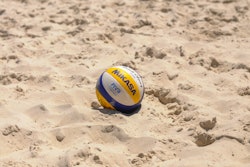A recent ruling by a U.S. district court judge has barred international athletes seeking entry to the United States to play for UCLA from being allowed into the country.
Sportico reports that 15 UCLA athletes (and a 16th at Loyola Marymount) hailing from countries such as Australia, Canada, Great Britain, Israel, Italy, New Zealand, Norway and Spain were denied entry to the country based on the Department of Homeland Security’s new policies for managing the pandemic. The athletes were recruited to play basketball and other sports, and many had received scholarships, grants-in-aid, and had turned down other opportunities in order to play and study in Los Angeles.
The students, whose names were all redacted in court filings, have reportedly followed the law as it pertains to legal entry under normal circumstances. Sportico reports that they have received nonimmigrant temporary visas, otherwise known as F-1 visas. Students who enter the country with such visas are restricted in the number of online class credits they can take while still maintaining a full course load, which is a requirement.
Therein lies the problem, as far as the students’ entry to the country is concerned. Amid the pandemic, many schools have shifted courses that would typically take place in person to a hybrid or wholly online format. DHS policy, however, bars the entry of new international students when their coursework would be entirely taken online.
The affected athletes argued for an injunction allowing them to enter the country and play for their schools, claiming that DHS was violating their due process rights as well as protections afforded them under the Administrative Procedure Act. However, Judge Virginia Phillips denied their requests, claiming that the affected athletes, while able to claim “concrete and particularized injury,” failed to overcome the substantial legal hurdles necessary to grant the injunction.
Phillips expressed doubt as to whether “interest in participating in [an] athletic program” constituted a protected constitutional interest, while also expressing skepticism in the athletes’ claims of violations under the Administrative Procedure Act, which is aimed at protecting from arbitrary agency actions. Phillips’ ruling suggested that the athletes were essentially seeking “a new regulation that permits all international students’ entry, including new first-year students, when their coursework is offered only online.” She further stressed that it is not the role of courts to “engage in substantive policymaking,” adding that “the public interest is not served where a court exceeds its authority by usurping the role of an agency.”
The players have filed an appeal to the U.S. Court of Appeals for the Ninth Circuit, so the legal case will continue.





































